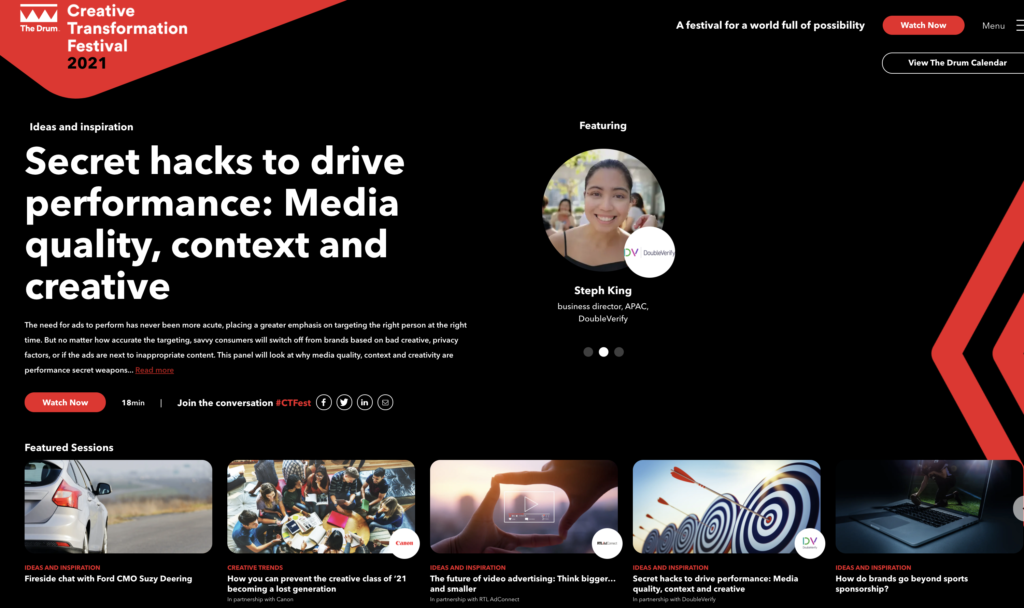Will virtual events be a catalyst for change in publishing?
In the last eighteen months, publishers and event organisers have had a crash course in virtual events. Most have now more or less mastered the technology and how to attract an audience. Now that in person events are making a tentative return, does that mean we are going back to the old days for events? Unlikely, according to a panel I chaired at The Publishing Show with Lynn Lester, MD Events at The Drum, Roy Rowlands, Director at Cognitive Publishing and Neemish Ladwa, Head of Product and Marketing at Ultima Media. All believed they had learned a lot from their virtual event experience, forcing them to question and re-evaluate how to develop events for audiences and sponsors.
Engaging a virtual audience
Virtual events have reached a much larger, more international, and more diverse audience. For The Drum, running virtual awards drove up to 30% growth in awards entries from around the world and attracted new judges. It also encouraged a focus on interviewing winners and understanding the best practice behind their success. Ultima Media started with free weekly livestreams, attracting up to 500 attendees. This built a quality database and provided insight into the hot topics, creating a platform to launch a larger virtual event for an international audience. The virtual event reached a wider range of job roles within automotive companies, as attendees weren’t limited by travel budgets. Cognitive, which operates in the UK public sector, found virtual to be a perfect platform for delegates to learn, and earn CPD certificates. However, in contrast to in person events, virtual delegates are far less interested in networking.
Raising the game in content
Keeping virtual audiences engaged requires much snappier, well produced content, closer to broadcast quality than the typical conference session or webinar. Cognitive have hired a former broadcast journalist to moderate their events to bring a new level of professionalism. Lynn at The Drum agreed that sessions must be shorter and tighter, with better lighting, camerawork, and higher production values. Some organisers are hiring producers with a broadcast background to add extra polish. This investment is worthwhile as audiences are keen to watch good event content on demand after the live session. Neemish of Ultima has used clips from virtual event content on social media for marketing, and as a trailer on registration pages. The Drum compile best practice videos from their awards to publish on their main website.
Charging delegates for virtual event content
Most organisers have kept their virtual events free for delegates. Ultima operated a two-tier system where some buyers had complimentary tickets and other delegate groups had to pay $100-300 to attend, a rate set well below the former in person event. Including event access as a benefit for corporate membership is another approach. The Drum has some event content that is free to access for one week, before going behind a membership paywall. So virtual events seem to work as a valuable benefit for paying members.
New forms of sponsorship
Sponsorship is the principal source of revenue for virtual events. All panellists agreed that a straight sales pitch would just be ignored by virtual attendees. Instead, they invest time in coaching sponsors to create sessions that are of interest to the audience and communicate the sponsors’ message. This will attract the right audience and help deliver quality leads. The excellent metrics and data provided by virtual events add value for sponsors. Cognitive experimented with an annual pass for sponsors to attend their virtual events. But companies found it hard to get a return when attendees were unwilling to network virtually, so instead Cognitive have offered other sponsorship packages.
As well as having sponsors in the programme for large events, The Drum run white label stand-alone virtual event sessions for single sponsors. All panellists think it is time to junk the word “webinar” which has connotations of a rather boring PowerPoint with a voice over and is no longer sufficient to engage a virtual audience.
A hybrid future
The future of events will be a mixed economy, with learning-driven conferences working better as fully virtual events. The era of remote working and travel bans, plus of course the drive for sustainability has caused many corporations to review their business travel policies. In future senior businesspeople may not take as many long-haul flights to attend international conferences. Instead they will be choosier about which they attend in person. All on the panel are cautious about running hybrid events, with a small invited in person audience plus a live stream, as production costs can escalate. But The Drum is keen to experiment with hybrid formats, and they also have an eye on the metaverse for the long term!
If you’d like to discuss how you can evolve your event portfolio for the future, please get in touch for a discussion over a real or virtual coffee.
About the author
Carolyn Morgan has bought, sold, launched and grown specialist media businesses across print, digital and live events. A founder of the Specialist Media Show (sold in 2014) she now advises media businesses large and small on their digital strategy through her consultancy Speciall Media.
Find out more about the advice we provide for publishers

